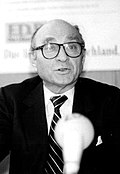
Back الانتخابات الفيدرالية الألمانية 1990 Arabic Парламенцкія выбары ў Германіі (1990) Byelorussian Eleccions federals alemanyes de 1990 Catalan Forbundsdagsvalget 1990 Danish Bundestagswahl 1990 German Elecciones federales de Alemania de 1990 Spanish 1990. aasta Saksamaa parlamendivalimised Estonian Saksan liittopäivävaalit 1990 Finnish Élections fédérales allemandes de 1990 French הבחירות הכלליות בגרמניה 1990 HE
| ||||||||||||||||||||||||||||||||||||||||||||||||||||||||||||||||||||||||||||||||||
All 662 seats in the Bundestag 332 seats needed for a majority | ||||||||||||||||||||||||||||||||||||||||||||||||||||||||||||||||||||||||||||||||||
|---|---|---|---|---|---|---|---|---|---|---|---|---|---|---|---|---|---|---|---|---|---|---|---|---|---|---|---|---|---|---|---|---|---|---|---|---|---|---|---|---|---|---|---|---|---|---|---|---|---|---|---|---|---|---|---|---|---|---|---|---|---|---|---|---|---|---|---|---|---|---|---|---|---|---|---|---|---|---|---|---|---|---|
| Registered | 60,436,560 ( | |||||||||||||||||||||||||||||||||||||||||||||||||||||||||||||||||||||||||||||||||
| Turnout | 46,995,915 (77.8%) ( | |||||||||||||||||||||||||||||||||||||||||||||||||||||||||||||||||||||||||||||||||
| ||||||||||||||||||||||||||||||||||||||||||||||||||||||||||||||||||||||||||||||||||
 The left side shows constituency winners of the election by their party colours. The right side shows party list winners of the election for the additional members by their party colours. | ||||||||||||||||||||||||||||||||||||||||||||||||||||||||||||||||||||||||||||||||||
| ||||||||||||||||||||||||||||||||||||||||||||||||||||||||||||||||||||||||||||||||||
| This article is part of a series on the |
| Politics of Germany |
|---|
 |
Federal elections were held in recently united Germany on 2 December 1990 to elect the members of the 12th Bundestag, within the regular time of nearly four years after the January 1987 West German federal election. Due to the accession of the former East German states on 3 October, after which the Bundestag was expanded with East German Volkskammer delegates, the elections were first democratic all-German elections since the early 1930s.
The result was a comprehensive victory for Chancellor Helmut Kohl and his governing coalition of the Christian Democratic Union/Christian Social Union and the Free Democratic Party (FDP), which was reelected to a third term (and a fourth in 1994). The second vote (preferred national party, first vote is for a local candidate) result of the CDU/CSU, 20,358,096 votes, remains the highest ever total vote count in a democratic German election.
The elections marked the first since 1957 that a party other than CDU/CSU and the Social Democratic Party (SPD) won a constituency seat (Direktmandat), breaking up the dominance of the two Volksparteien. The first (and only) time since 1957 that FDP won a constituency seat was by Uwe Lühr in Halle, home of Hans-Dietrich Genscher, the "architect of German reunification". In addition, Gregor Gysi (PDS) won Berlin-Marzahn – Hellersdorf.
Cite error: There are <ref group=lower-alpha> tags or {{efn}} templates on this page, but the references will not show without a {{reflist|group=lower-alpha}} template or {{notelist}} template (see the help page).



